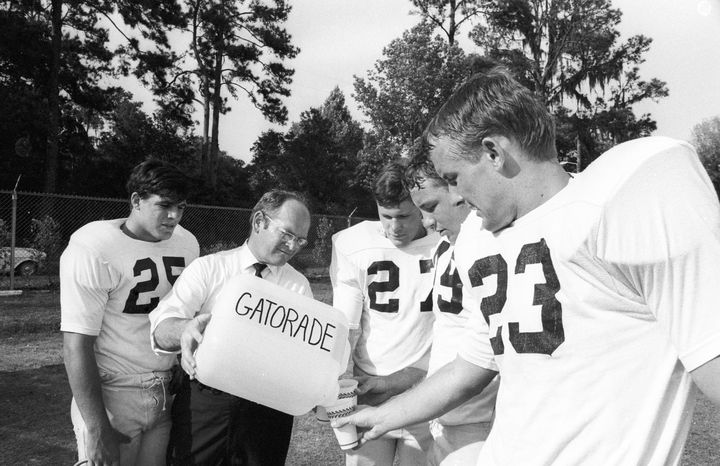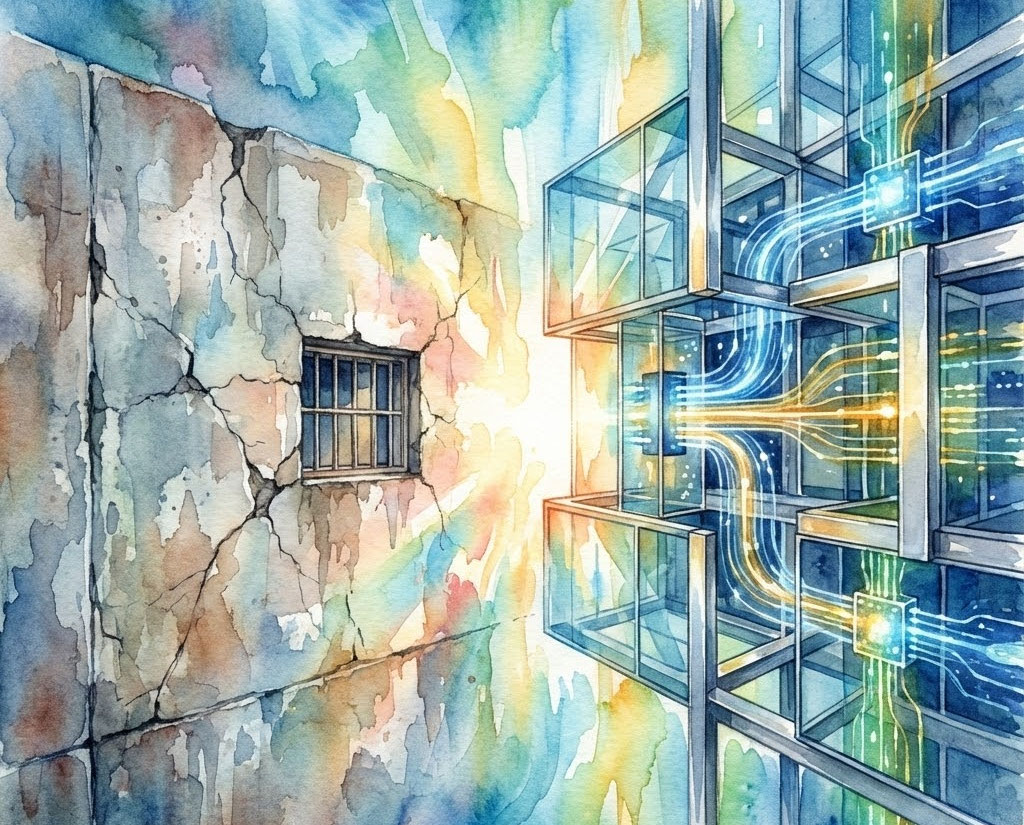
In 1965, Dr. Robert Cade began some research relating to an off-hand comment from one of his students:
“Why don’t I pee during football practice?”
That might come off as a strange question, but of all people, Dr. Cade was the person to ask. He was, at that time, a professor of Nephrology and Internal Medicine at the University of Florida.
Shortly after that question and an invitation from the Gators’ Coach, Ray Graves, Cade began to research the hydration and performance of the UF freshman footballers.
Almost immediately, Cade recognized some familiar physiological symptoms. Players were losing eighteen pounds through the course of a game, ninety-five percent of which was water loss. They were experiencing drops in water and plasma levels, including the depletion of those magical energy molecules, electrolytes (namely sodium and potassium.) All of this strongly resembled a condition Cade was well-acquainted with: renal failure.
Any one of the above afflictions alone will inhibit mental and muscular function. Put them all together, and the athlete faces a significant risk to their health. Cade and his team experimented with some concoctions, and the rest is history.
The Gators won the Orange Bowl in 1967. Coach Bobby Dodd gave Gatorade credit for the win. Stokely-Van Camp began producing Gatorade and within the year Gatorade became the official drink of the NFL.
But, this is not a story about physiology, body chemistry, football, or beverages. This is a story about Intellectual Property.
Intellectual property is an especially relevant issue at HeroX, where each innovator submitting to a challenge enters into a unique agreement, a large part of which addresses IP ownership if their entry is chosen as the winning solution.
Turning salty lemonade into a multi-million dollar product is, as with most multi-million dollar products, almost sure to gather a few interested parties claiming rights to the idea.
In the story of Gatorade, the three main parties were Dr. Cade and his Gatorade Trust, the University of Florida, and the Federal Government.
Revenue generated by intellectual property is distributed through royalty agreements. Royalty is a payment made by one party to another that owns a particular asset (intellectual property in this case) for the right to ongoing use of that asset.
Dr. Cade and his team went out of their way to investigate a problem, and while doing that they created a valuable solution. They were doing this work while employed by the University of Florida, with integral participation of the University football team. While they did this work, Cade’s team was receiving financial support from a government grant. Those overlapped, varying interests are how Gatorade Trust, The University of Florida, and the Federal Government came to dispute who was entitled to the ownership of “Gatorade” and its royalties. (It is arguable that the Coaches and the football players could have also contested partial ownership of the formula based upon their contribution to its development.)
A game is only fair if you set the rules before you begin to play. It is not fun, nor fair, to create or modify rules during gameplay. The concept of "fair play," and whether or not its recognized, is a cornerstone of civilized society and the larger interplay between individuals, organizations, and institutions. It then goes without saying that it is important to establish expectations and limitations before engaging in relationships, most particularly relationships that stand to generate great value for the parties involved.
Whether you’re an individual, a company, a university, or a government agency, life is made simpler when terms and conditions are set before major developments and events take place.
In the case of Gatorade, these terms and conditions were not firmly established from the beginning, as is often the case on campuses and in offices of across the US. Interestingly enough, the University of Florida did have a policy in place about IP ownership in place at the time. It entitled the University 50% of revenue generated by any patent developed on campus. However, because they didn't have the paperwork with Dr. Cade’s signature on file, the percentage of ownership was ultimately contestable.
In 1972, after some legal sparring, the Gatorade Trust and the University of Florida came to an agreement, with UF granted 20% ownership of Gatorade.
To date, that 20% has resulted in more than #250 million in revenue for UF.
There is no mention, of the Federal Government obtaining any outright ownership (though we can imagine they benefit from the sale of Gatorade, one way or another.)
The cautionary tale about the power of relativity and the importance of contractual foresight is not one often told, but it bears repeating. In our technologically sophisticated world of information fluidity and ambiguous origination, there's a renewed significance to the nuances of intellectual property.
After all, $250 million is nothing to sneeze at (for most of us, anyway.) Additionally, on a funny note of hindsight, Cade attempted to sell the ownership of “Gatorade” to the University of Florida for $10,000 in 1965.
The University declined his offer, unaware that full ownership would have netted the University close to $1B over the next fifty years.
Hindsight is 20/20 though, and unfortunately, that phrase tends to crop up when we "woulda-shoulda-coulda." Proactivity goes a long way, though, so take this story and apply it in your work, your personal life, and your studies -- not to mention your participation in HeroX.
Establish the “rules of the game” beforehand, and that way, as the game proceeds, everyone might refer to a pre-established code of expectations and restrictions. A practical approach as this may just save you some regret and hard feelings along the way.
Good luck, everyone. Take a look at our current challenges and see if there's some IP just waiting to be created.
Keep inventing, keep innovating, and most importantly: stay wise.








